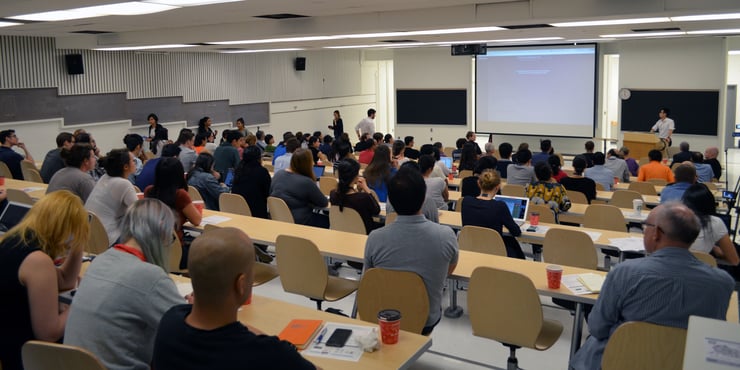In part 1 of this series, I laid out our journey so far as a guide to the path life sciences startups typically go through. In this post, I'd like to share things I've learned along the way, and provide some tips and advice for fellow entrepreneurial PhDs.
Soft Skills from PhD Training Align with Startup Culture
I found that the soft skills that we developed during PhD training are extremely valuable in the startup environment. In particular, we're trained to be:
Analytical: When faced with a problem, we experiment with different approaches, analyze the data and decide the best solution. To put this into context, when designing the BenchSci platform, instead of guessing which UI users prefer, we did an A/B test and let the data speak for itself.
Adaptable: I might prefer to work with cells rather than animals, but to publish in high-impact factor journals, I had to learn to conduct behavioral experiments. Along the same lines, I might prefer to speak to living cells rather than living people, but to promote BenchSci adoption I had to learn to make sales pitches and network with potential users.
Resilient (thanks to all those failed experiments): This is particularly important because things rarely work out as expected in startups, just as in PhD projects. But we learn to understand the failure and press on instead of giving up.
It's All About the Team
Anyone can come up with a great idea, but whether or not the idea turns into a successful company depends on careful and timely execution, which in turn takes a great team.
As the saying goes, "You need the right tool for the right job." For an ideal team, each member has a specialized skillset for specific aspects of the company. That's why members of the BenchSci team come from a variety of disciplines—ranging from cell biology, to computer science, to bioinformatics, to business—even though the company's focus is biomedical research. Our team members must trust each other to fulfill their responsibilities and move forward together as a company.
In addition, many investors invest in early-stage startups because they believe in the team. For us, having a team of PhDs definitely added a layer of creditability.
Running a Startup is like Running a Lab
Interestingly, I found there are many similarities between running a lab and a startup.
As in a lab, there is a PI—the CEO—who is responsible for getting funding and guiding the team to a single goal. As in a lab, where there are grad students and post-docs working on different projects that together tell a cohesive story, in BenchSci we have different teams—engineering, science, marketing—that work together to grow the company. Lastly, as in a lab, we’re results-driven. Oh, and one more thing: as in a lab, no matter how great the data, it’s always a long, hard fight to get more funding!
Want to Take the Plunge? Here's My 2-Cents on Where to Start
Okay, if you've read this far, you're probably interested in—or at least curious about—pursuing something entrepreneurial. If so, here are some ideas for next steps:
1. Enrol in incubators and accelerators
Most universities have these or similar resources you can take advantage of. Incubators and accelerators are like the first checkpoint for determining whether your idea can become a successful business. And recognition by incubators and accelerators can open doors to investors.
2. Don’t be afraid to talk about your ideas
This is the only way to find a team that will resonate with your ideas, and to test whether or not your ideas have merit with potential customers. You would feel much more confident that you have a "unicorn" if 100 people agree rather than 10.
3. Explore entrepreneurship during grad school or post-doc
If you're in grad school or a post-doc, it's an ideal time to explore startups. You have lots of flexibility in time management and are getting paid by graduate stipend or post-doc salary. You can likely spare an hour or more each day to work on ideas in between experiments or during incubation periods. Perhaps most importantly, you’re surrounded by extremely smart people, and there’s no better place to assemble a talented team.
What I'm Trying to Say Is..
Having been in a startup environment for just over 2 years, I'm by no means an expert. But I hope this short series gives fellow life science PhDs a possible answer to the question: "What am I going to do after graduation?" Whether it's starting your own startup or joining one, entrepreneurship can be a fitting option as a career path for life science PhDs.
I'd be happy to answer any question in the comment section below!


